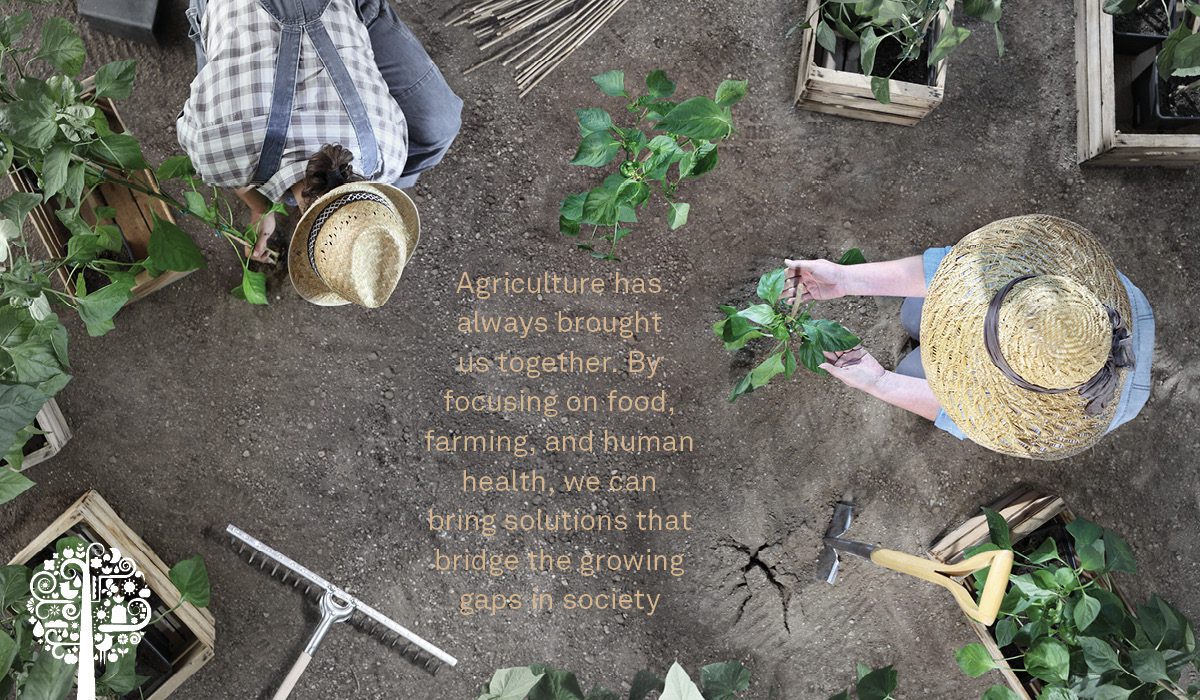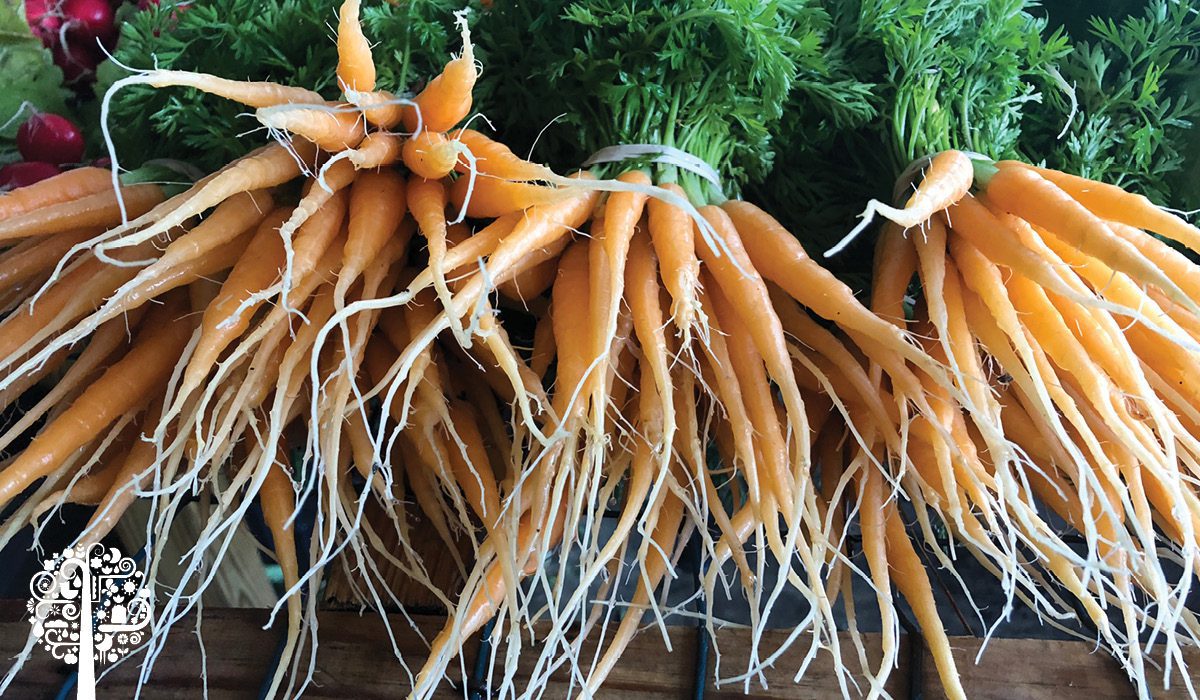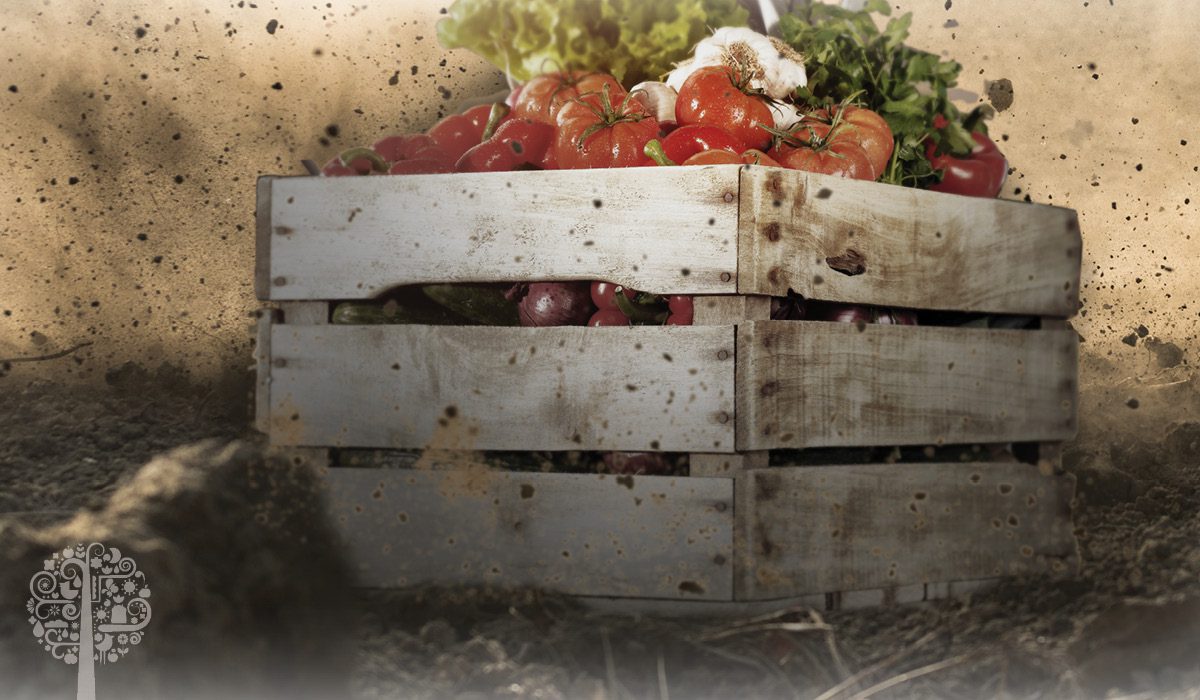Agricultural Threefolding and Building a Cooperative Grocery Store in a Food Desert
In a big broad stroke, we live in a world defined by culture, rights, and economy. These domains of social activity generate the landscape for our humanity. The conscious dynamic between these realms, combined with the relative autonomy and authority that they hold, leads to the potential for a healthy society and world.
Agricultural Threefolding
Rudolf Steiner first developed the concept of social threefolding in 1915 in response to the first World War. It represents a profound and straightforward way to apply systems-thinking to our social order that we can trace throughout our lived experience. For instance, when church (culture) is not separated from state (rights), society gets sick. Same with the collusion of corporations (economy) with the government (rights) seen in corporatism.
The threefolding phenomenon is also alive in agriculture. Suppose we define agriculture as more than just growing crops and as a symbiotic relationship between food, farming, and human health. In that case, we open up the unlimited potential to fix the significant challenges that we face – hunger, poverty, climate change, health care, and beyond.
The Northside Food Co-op
Seeking resonance in the spheres of food, farming, and human health is the basis for my work as a consultant. A focus on agricultural threefolding has drawn me to all sorts of impactful projects. One of the more interesting ones is an engagement as the Project Manager for the Northside Food Co-op (NorthsideFoodCoop.com).

The Northside Food Co-op is a community-owned cooperative grocery store being planned for a generational food desert in the historically underserved and minority-based Northside community in downtown Wilmington, NC. Our mission is to ensure food security by ending the food desert, generate resilience in our neighborhoods, and enhance the local economy through equity and ownership.
The project strikes the heart of the interface between what we eat, how we grow food, and public health. The cooperative business component overlays a spirit and expectation of personal agency or the concept that our ideas impact the world, which is a very effective tool for organizing an underserved community.
A Community-Based Approach
A cooperative business, or co-op, is, effectively, a for-profit organization with a non-profit mentality. This means that it is essentially a break-even enterprise, where all of the profits generated are returned to owners as dividends or invested back into the community. It also means that, rather than corporate interests, community members plan and operate all business aspects.
Food co-ops bring massive residual benefits to the community. Primary among them is that cooperative business is democracy and equity in action, which inspires the type of community activism required to bring attention to forgotten communities in ways that a typical grocery chain cannot. In other words, cooperative business challenges and flexes the exact muscle we need to strengthen in society to produce meaningful change – people showing up for ourselves in shared values to solve common problems.
The Benefits of Food Co-ops
Food co-ops deliver benefits over and above those of traditional entrepreneurial-based grocery stores. The study, Healthy Foods Healthy Communities: The Social and Economic Impacts of Food Co-ops, commissioned by National Co+op Grocers (NCG), quantifies these benefits:
- For every dollar spent at a food co-op, $0.38 is reinvested in the local economy compared to $0.24 at conventional grocers.
- Traditional grocers work with an average of 65 local farmers and food producers; food co-ops work with an average of 157.
- Locally sourced products make up an average of 20% of co-op sales compared to 6% at traditional stores.
- For every $1,000 a shopper spends at their local food co-op, $1,604 in economic activity is generated in their local economy—$239 more than if they had spent that same $1,000 at a conventional grocer.
The Challenges
Localized ownership results in significant socioeconomic benefit and begins to lay a real and psychological pathway towards community wealth. But when it comes to the grocery business and the society and economy that we live in, food co-ops also present some serious challenges.
For instance, hardly anyone knows what a cooperative business is, to begin with, so a serious effort to educate the public is required before the grocery store can be built. On top of that, because the project lacks the typical entrepreneurial profit incentive, it takes a massive coordinated effort to activate the community and come together to ensure the business’s success. Once the store is in operation, grocery margins are famously low, so the community’s connection remains a critical factor over time.

Then, of course, there is the challenge of fundraising. Ownership sales fund the beginning stages of the project. Our model offers a one-time payment of $100 to be an owner of a patron share, which under North Carolina law can only be sold to North Carolina residents. We also have a Pay-It-Forward sponsorship program where people can donate $90 to help support $10 ownerships for Northside residents who may need financial assistance. Longer-term fundraising is accomplished by a combination of banks and community capital campaigns.
A cooperative business is an exercise in the literal expression of democracy. The organization is run by the premise of “one person, one share, one vote”, which means that no single person can own more of the business than any other person. In other words, the business is owned by and benefits the people who use it – the community members.
The Northside Food Co-op is much more than a grocery store project. It is an effort to elevate a disenfranchised community through food. It is a powerful community catalyst and a place we can call our own. Not only is a grocery co-op one of the more potent ways to engage the realm of agricultural threefolding, but the Northside community has stories to tell.
A Sad History
The Northside was the epicenter of one of the most egregious racism displays ever recorded in human history. On November 10th, 1898, the Northside community was the site of the only successful coup d’état in the history of the United States. The insurrection was racially motivated and began with targeting a black-owned newspaper run by a man named Alexander Manly and culminated in the obliteration of a thriving interracial community in Wilmington that included numerous minority politicians and black-owned businesses.

Our city carries the wounds of these events to this day. The book Wilmington’s Lie and the documentary Wilmington on Fire chronicle the sad history. The coup resulted in deep-seated racial disparity that can only be healed by conscious and focused atonement, and it is in this spirit that the Northside Food Co-op was born.
The railroad employers dominated the Northside economy until they left the area in the 1960s and 1970s. In the 1980s, the last grocery store left the downtown area leaving the Northside a shell of its thriving past signaled by empty storefronts and run-down buildings. The Northside residents who remain comprise over 70% minorities, with more than 65% of residents African American. The annual income of Northside residents is close to 50% below our county’s median yearly income, and almost 20% of households do not have access to a vehicle. Unfortunately, this is the story of inner-city USA.
For 30+ years, the Northside community has asked for a grocery store. In 1996, a citizen group pooled money from Northside residents to build a grocery store but ultimately failed to do so. Later, in 2003, the City of Wilmington set the goal that a grocery store be built on the Northside by 2005. This effort also never materialized, and today a food desert remains.
Defining Food Deserts
The USDA defines a food desert as “urban neighborhoods and rural towns without ready access to fresh, healthy, and affordable food.” Instead of supermarkets and grocery stores, food desert communities have very little fresh food access. They are typically served by fast-food restaurants and convenience stores that offer few healthy, affordable food options.
Quality food is the foundation for healthy communities. Ultimately, a communities resilience and ability to thrive begins with nourishment, and on this front, we have a lot of work to do.

More than 70% of the average diet is processed in America, and only 10% of Americans eat the recommended amounts of fruits and vegetables. In food deserts, these numbers are even worse. We experience the reality of our compromised diets in the epidemic of chronic disease that threatens the foundations of our civilization.
The success of the Northside Food Co-op will be a direct metric of community support. It is a massive effort, but we must bring our will into action and muster the courage to seek new ways of doing things if we are to find real solutions to our problems.
Agriculture has always brought us together. By focusing on food, farming, and human health, we can bring solutions that bridge the growing gaps in society. We need coopetition, not competition. Compassion and action, not cynicism. People power, not profit at all costs. If we are to reach our human potential, we must challenge ourselves to show up for ourselves.
We can do all of this with a food co-op.




